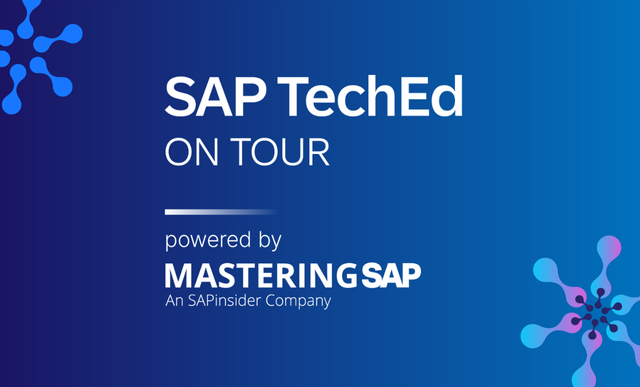The Role of Artificial Intelligence in Automation
By Rizal Ahmed, Chief Content Officer, SAPinsider
Everyone is talking about Artificial Intelligence and Machine Learning, but how specifically can these technologies add value to your automation projects?
Applying AI and ML for Automation: Where Are You on the Spectrum?
Stories and content on Artificial Intelligence are regularly splashed across most business and technology trade publications, but when does hype become reality when It comes to applying AI and ML to generate real results?
Explore related questions
It already has for many organizations, finds a recent SAPinsider study. Just under half (44%) of the respondents in our “Integrating Process Automation and SAP S/4HANA” report (June 2020) have already started down the path of using Machine Learning and AI to improve business processes. However, 56% are doing nothing or just using basic Robotic Process Automation.
In order to understand this wide disparity and further explore the benefits and use cases of applying artificial Intelligence and machine learning to process automation, SAPInsider sat down with Aurélien Coq, Product Manager, Esker.
Demystifying AI, ML, and RPA and Their Role in Automation
Coq describes AI as simply as a way for the machine to mimic the human mind. “Machine Learning is a subset of AI, and Deep Learning is a subset of machine learning. Machine learning is a machine that can learn by itself without being explicitly programmed,” Coq says.
When it comes to automation AI and ML are typically applied in two distinct ways when it comes to order-to-cash automation. First for document capture and helping to automate the standardization of documents and data. The second use centers more on using intelligence to identify anomalies or areas of improvement. “In this scenario, one example might be setting alerts that can be initiated if certain conditions or thresholds are achieved. For instance., if a quantity entered is unusually high or low. That might be a basic one. A more advanced one could be using a predictive algorithm that senses when a customer’s credit or ability to pay comes into question and then you can flag the order or escalate to a personal communication,” Coq describes.
So what about Robotic Process Automation (RPA)? Is that AI? According to Coq, RPA is more of a steppingstone. RPA originated from software engineering circles where it was developed to automate testing. Because it focuses on simple manual tasks, there are limitations to its application in the business “RPA is good for small simple parts of an end-to-end process but not the entire process. The reason is that RPA does not work well when it comes to visual recognition, leveraging intelligence, or facilitating decision making,” Coq reports.
Reaping the Benefits: 80% Efficiency Improvements Are Possible
Esker has been working with many clients on applying AI to improve business processes. Efficiency and productivity are among the key measures where they are seeing results particularly on the order processing side. “We have been working with a pharmaceutical company that has been able to improve processing time by 80%. They took 3 minutes typically to process an order before and now they are doing it in 33 seconds. They are saving over 190 hours a month for the customer service team and now they can spend time on more strategic initiatives to improve their business,” reports Coq
So how does one get started, and how easy is it to start generating the results that are described above? Well it depends on the path you take. The longer road involves going it on your own. Unless you already have the AI skillsets, data and algorithms in place, many organizations are turning to vendors such as Esker to help them move forward.
Esker has been applying AI solutions to automation for more than a decade, and in that time has been able to build out a significant set of data and trained algorithms that their customers can leverage. According to Coq, data is one of the most important elements of any AI-based project. Without properly cleansed, tested, and labeled data, it doesn’t matter the quality of the algorithm.
Esker like most AI focused vendors has also benefited from being able to tap into many public algorithms that have been developed by technology stalwarts such as Facebook and Google. “We were able to adapt some of Facebook’s facial recognition technology into our document scanning engine,” reports Coq. In that spirit, the AI community has been able to share knowledge to help accelerate innovation.
Speed is the name of the game when it comes to getting these projects up and running quickly Most of Esker’s clients are completing their AI projects within months, not years, says Coq. Esker’s Cloud-based solutions have been an important piece of the puzzle. Customers can just plug their applications into Esker’s solution,
There’s more to it of course, Coq stresses. Most of their AI focused automation projects are completed over the course of two key phases. First, integrating key applications and processes into Esker’s AI engine, which typically takes 2-3 months. The second stage involves another 2-3 months of tuning the engine to the customers data so that the algorithm produces accurate results. The more customers that use the algorithm, the faster this becomes for follow on customers, “The models are getting better with their use. The more we see adoption the later the ramp up time decreases for new customers,” reports Coq.
Esker is not trying to boil the ocean with their AI approach but rather remain focused in what they feel they do best; Order-to-Cash and Procure-to-Pay. “We’re not trying to automate the entire world and be another EDI type technology. We want to help organizations combine human and artificial intelligence to deliver greater value within their customer/supplier relationships,” explains Coq.
What Does This Mean for SAPinsiders?
Whether you’ve already started down the Artificial Intelligence Path or are taking your first steps. Here are some takeaways to guide your exploration of AI and ML in process automation.
- Build institutional knowledge on AI and RPA in data, skillsets, partners and algorithms. No matter who you are or what role you play, getting smarter on AI is only going to help you and your organization. Expand your knowledge of AI concepts and how they can be applied within your organization. In addition to SAPInsider, Organizations like Esker have plenty of knowledge, case studies, whitepapers, etc. on AI and Machine Learning. Be voracious in feeding your AI appetite.
- Identify your biggest process problems and potential fit for RPA or ML/AI: Perform a fundamental assessment of your end-to-end processes. Benchmark them against industry standards to see how you measure up. Understand the sources of inefficiency within your business processes and where RPA, AI, or machine learning can add value. Talk to peers at industry conferences or reference customers from your partners to learn how they have applied these technologies for business benefits.
- Question your current and future partner on their AI and ML capabilities and experiences Vendors have varying level of experiences with applying AI and Machine Learning to specific business instances and industries. Make sure you have the right fit. Newer AI companies may not have had the opportunity to tune their data models and algorithms or work with enough companies to truly test the accuracy and results of what they are doing. Ask for reference customers who have applied their technology to the specific processes you are focused on and who also fit in your industry and company profile to make sure that they can deliver against their promises.
- Clean up your data and interfaces. AI algorithms are only as good as the data that it uses. You must be able to have clean, labelled data that can be easily passed and integrated with Cloud-based models and algorithms like the ones that Esker relies on. If you need to work on the data, that will impact the length and complexity of your project no matter what vendor you choose or even if you do the project on your own.
ABOUT Esker
Esker is a global provider of automation solutions that support the full procure-to-pay and order-to-cash business processes. Founded in 1985, Esker serves over 6,000 global SaaS customers across more than 50 countries. Esker has more than 700 employees and 14 offices worldwide.





